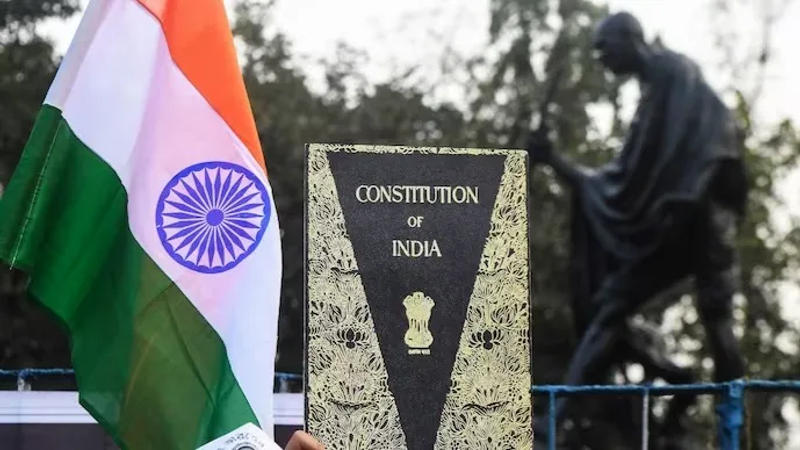Published 11:44 IST, December 14th 2024
Frequent Poll Code Imposition Disrupts Development, Normal Public Life: Simultaneous Polls Bill
There is an imperative need for holding simultaneous elections for various reasons as polls have become expensive and time-consuming, according to the proposed bill being brought to implement the ambitious 'one nation, one election' plan.

New Delhi: There is an imperative need for holding simultaneous elections for various reasons as polls have become expensive and time-consuming, according to the proposed bill being brought to implement the ambitious 'one nation, one election' plan.
According to the constitution amendment bill listed for introduction in the Lok Sabha on Monday, the imposition of a Model Code of Conduct in several parts of the country which are poll-bound puts on hold the entire development programmes and causes disruption of normal public life.
Frequent poll code imposition also impacts the functioning of services and curtails the involvement of manpower from their core activities for deployment for prolonged periods for election duties, the 'Constitution (129th) Amendment Bill, 2024' underlined.
The bill proposes to insert a new article 82A -- simultaneous elections to the House of the People (Lok Sabha) and all legislative assemblies and to amend Article 83 (Duration of Houses of Parliament), Article 172 (Duration of State Legislatures) and Article 327 (power of Parliament to make provision with respect to elections to Legislatures).
The bill also provides that after its enactment, a notification is to be issued by the President on the date of the first sitting of the Lok Sabha after a general election, and that date of the notification will be called the appointed date.
The tenure of the Lok Sabha will be five years from that appointed date.
The tenure of all state Assemblies, constituted by elections to the Legislative Assemblies after the appointed date and before the expiry of the full term of the House of the People, shall come to an end on the expiry of the full term of the Lok Sabha.
"Thereafter, all general elections to the House of the People and all Legislative Assemblies shall be held together simultaneously.
"In case of dissolution of the House of the People or a Legislative Assembly, sooner than the full term of the House of the People or the Legislative Assembly, the term of the House or Assembly constituted pursuant to elections shall be for the unexpired term of the House or the Assembly," it explained.
The bill pointed out that the general elections to the House of the People and all State Legislative Assemblies were held simultaneously in the years 1951-52, 1957, 1962 and 1967.
"However, due to premature dissolution of some Legislative Assemblies in 1968 and 1969, the cycle of holding polls simultaneously with the House of the People got disrupted," it recalled.
Get Current Updates on India News, Entertainment News along with Latest News and Top Headlines from India and around the world.
Updated 11:44 IST, December 14th 2024




